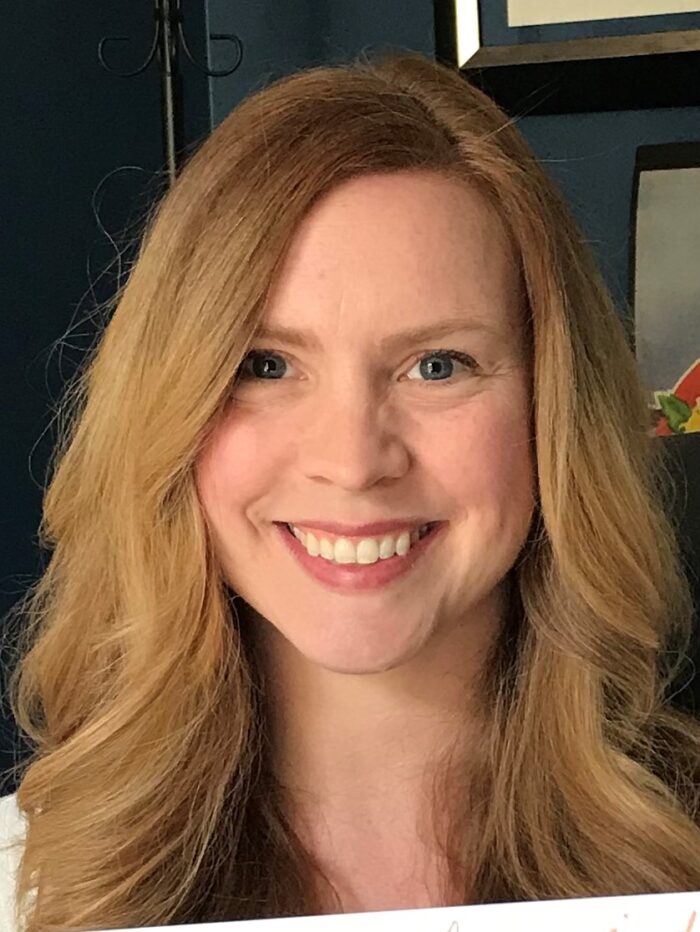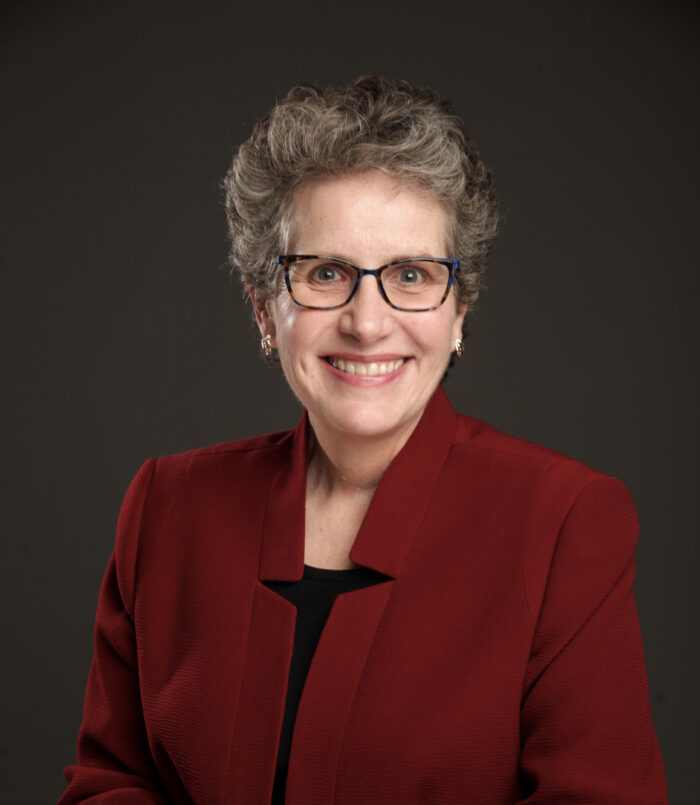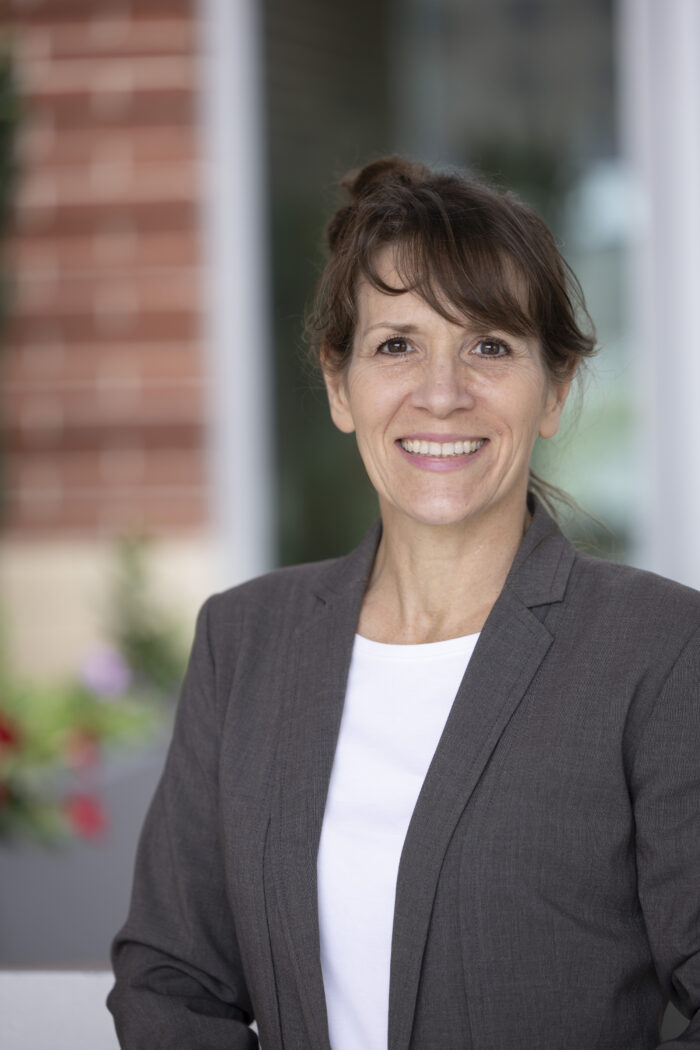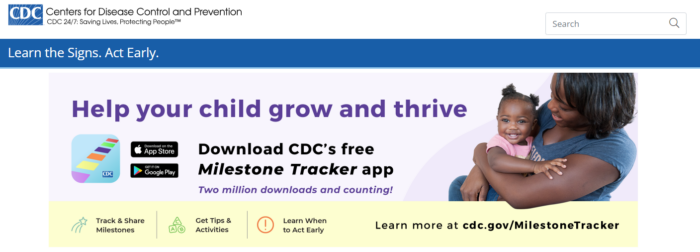- This event has passed.
Engaging Families to Support Early Childhood Development in the Health Center Exam Room and Beyond: CDC’s FREE “Learn the Signs. Act Early.” Resources Can Help

Through everyday interactions with families, health care providers and staff across community health centers can actively promote early childhood development and recognize young children at risk of developmental delay or disability. Join the U.S. Centers for Disease Control and Prevention (CDC) and Early Childhood Developmental Health Systems (ECDHS): Evidence to Impact Center on Thursday, August 8, 2024, 4-5:30 PM EDT, for the webinar, Engaging Families to Support Early Childhood Development in the Health Center Exam Room and Beyond: CDC’s FREE “Learn the Signs. Act Early.” Resources Can Help.
Families play an essential role in their children’s development. When health centers share information with families through engaged developmental monitoring, it can enhance their efforts to improve screenings, identify delays and disabilities, and encourage families to follow up when referred to services. To support these efforts, this webinar will spotlight CDC’s “Learn the Signs. Act Early.” program and its free resources to help providers and staff engage and empower families as critical partners in developmental monitoring. Presenters include:
- Katie Green, MPH, CHES, Senior Health Communication Specialist and Team Lead, “Learn the Signs. Act Early.” Program, CDC
- Jill Sells, MD, FAAP, Physician and Partnerships Lead, “Learn the Signs. Act Early.” Program, CDC; Clinical Professor of Pediatrics, University of Washington School of Medicine
- Toni Whitaker, MD, FAAP, Division Chief, Developmental Pediatrics, University of Tennessee Health Science Center Department of Pediatrics; Consultant and Ambassador to Tennessee, CDC’s “Learn the Signs. Act Early.” Program
Partners from the Health Resources and Services Administration’s Maternal and Child Health Bureau and Bureau of Primary Health Care will also join for introductory remarks.
This event is tailored for federally qualified health centers, focusing on resources and strategies to engage families and provide a continuum of services to support child development. It is also beneficial for a broad array of professionals, including clinicians, support staff, administrators, leadership, and anyone who interacts with, or supports programs for, young children and their families. By the end of the webinar, attendees will be able to:
- Recognize the critical role that families play in monitoring and supporting their child’s development.
- Understand how engaging families in monitoring as part of ongoing developmental surveillance complements developmental screening.
- Describe how CDC’s free “Learn the Signs. Act Early.” resources can help engage families in developmental monitoring in a simple and effective way.
- Identify strategies health centers can implement to engage families and build early childhood development expertise into care teams.
CEU credits will be available to those who attend the live webinar.
Speakers
Katie Green, MPH, CHES
Katie Green, MPH, CHES, is a Senior Health Communication Specialist and the Team Lead for the “Learn the Signs. Act Early.” program at CDC. She has served as a public health educator and communication specialist within CDC’s National Center on Birth Defects and Developmental Disabilities since 2002. She has expertise in developing messaging, tools, resources, and programs to empower individuals and families to take action to prevent birth defects (2002-2007) and to educate and empower families to monitor and promote children’s early development (2007-present). She leads a small but award-winning team of communicators, evaluators, physicians, and partner strategists in the planning, implementation, and evaluation of CDC’s “Learn the Signs. Act Early.” program, overseeing all of its efforts to support families and other caregivers of young children and improve the systems and programs that serve them.

Jill M. Sells, MD
Jill M. Sells, MD, is the Physician and Partnerships Lead for the “Learn the Signs. Act Early.” program at CDC. She previously served as the Medical Advisor for the National Center on Health, Behavioral Health, and Safety, part of the National Head Start program’s Training and Technical Assistance system. A pediatrician with over 20 years of focused work in early childhood development, she has supported multiple national, state, and local early childhood initiatives, with an emphasis on family engagement and health care connections. She was the founding Executive Director of Reach Out and Read in Washington state, a family-centered early childhood literacy program based in the medical home. As an executive leader and consultant, she gained extensive experience supporting policy and programs related to early childhood and health care, encouraging an integrated early childhood systems approach that meets families’ needs within communities. She is a Clinical Professor of Pediatrics at the University of Washington School of Medicine and past chair of the American Academy of Pediatrics’ Council on Early Childhood.

Toni M. Whitaker, MD
Toni M. Whitaker, MD, is a Professor and Division Chief in Developmental Pediatrics at the University of Tennessee Health Science Center (UTHSC) and Le Bonheur Children’s Hospital in Memphis. She currently serves as a Consultant to the CDC’s “Learn the Signs. Act Early.” program and has been the Ambassador to Tennessee for the program for more than a decade. In these roles and as Medical Director of a statewide training program of the TN Chapter of the American Academy of Pediatrics, she has been active in promoting family-engaged developmental monitoring and developmental screening to a wide variety of audiences. She is the Director of the UTHSC Leadership Education in Neurodevelopmental and Related Disabilities (LEND) program funded by the Maternal and Child Health Bureau to improve the health of individuals who have, or are at a higher likelihood for developing, autism or related developmental disabilities by providing interdisciplinary graduate and professional training in neurodevelopmental disabilities.









